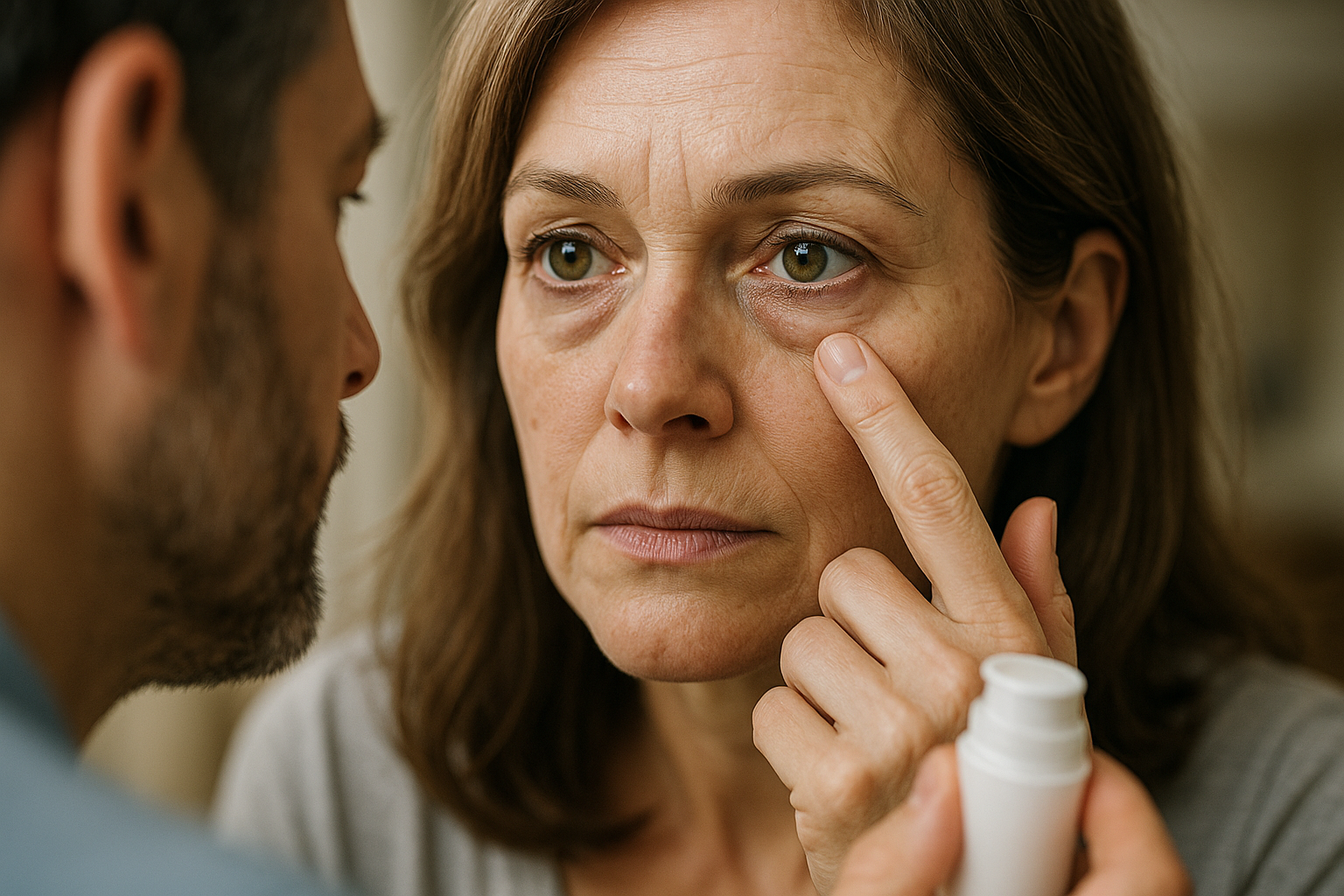The Hidden Risks of Atopic Dermatitis in Seniors You Need to Know
Eczema, also known as atopic dermatitis, can be especially challenging for older adults. Catching the symptoms early and getting the right treatment can make a big difference—helping to ease discomfort, prevent complications, and keep flare-ups from taking over your daily life.

What are the common signs of atopic dermatitis in seniors?
Recognizing the signs of atopic dermatitis in seniors is crucial for timely intervention. Common symptoms include dry, itchy, and inflamed skin, often appearing on the face, neck, hands, and feet. In older adults, these signs may be more subtle or mistaken for other skin conditions. Seniors might experience:
-
Persistent itching, leading to scratching and potential skin damage
-
Thickened, leathery skin texture in affected areas
-
Increased skin sensitivity and reactivity to environmental triggers
-
Discoloration or hyperpigmentation in chronic eczema patches
-
Scaling or flaking of the skin, particularly in dry environments
Understanding these atopic dermatitis signs is essential for proper diagnosis and treatment.
How does atopic dermatitis differ in seniors compared to younger adults?
Atopic dermatitis in seniors presents unique challenges that set it apart from cases in younger adults. The aging process affects skin structure and function, influencing how the condition manifests and responds to treatment. Key differences include:
-
Decreased skin barrier function, making seniors more susceptible to irritants and allergens
-
Reduced skin elasticity and moisture retention, exacerbating dryness and itching
-
Slower skin cell turnover, potentially prolonging healing time
-
Increased risk of secondary infections due to compromised immune function
-
Potential interactions with other age-related health conditions and medications
These factors underscore the importance of tailored approaches to atopic dermatitis treatment in older populations.
What are the potential complications of untreated atopic dermatitis in seniors?
Untreated atopic dermatitis in seniors can lead to several serious complications that extend beyond skin discomfort. These hidden risks include:
-
Increased risk of skin infections, particularly bacterial and fungal
-
Sleep disturbances due to persistent itching, affecting overall health and cognitive function
-
Heightened anxiety and depression related to chronic discomfort and visible skin changes
-
Reduced mobility and independence due to severe cases affecting hands and feet
-
Social isolation stemming from embarrassment or discomfort in social situations
Early intervention and proper management are crucial in mitigating these potential complications and maintaining quality of life for seniors with atopic dermatitis.
What are the most effective treatments for atopic dermatitis in older adults?
Effective atopic dermatitis treatment in seniors often requires a multifaceted approach tailored to the individual’s needs and overall health status. Common treatment strategies include:
-
Moisturizing regimens: Regular use of emollients to improve skin hydration and barrier function
-
Topical corticosteroids: Carefully prescribed to manage inflammation and itching
-
Immunomodulators: Non-steroidal topical treatments to control immune response in affected areas
-
Antihistamines: To help alleviate itching and improve sleep quality
-
Phototherapy: Controlled exposure to UV light to reduce inflammation in severe cases
-
Lifestyle modifications: Identifying and avoiding triggers, maintaining proper skincare routines
It’s essential to work closely with healthcare providers to develop a personalized treatment plan that considers the unique needs of senior patients.
How can seniors prevent atopic dermatitis flare-ups?
Preventing atopic dermatitis flare-ups in seniors involves a combination of proactive measures and lifestyle adjustments. Some effective strategies include:
-
Maintaining a consistent skincare routine with gentle, fragrance-free products
-
Using a humidifier to add moisture to the air, especially in dry climates
-
Wearing soft, breathable fabrics and avoiding irritating materials like wool
-
Managing stress through relaxation techniques or mindfulness practices
-
Staying hydrated and maintaining a balanced diet rich in anti-inflammatory foods
-
Avoiding hot showers and baths, opting for lukewarm water instead
-
Regularly moisturizing immediately after bathing to lock in hydration
By implementing these preventive measures, seniors can significantly reduce the frequency and severity of atopic dermatitis flare-ups.
What role do lifestyle factors play in managing atopic dermatitis for seniors?
Lifestyle factors play a crucial role in managing atopic dermatitis for seniors. Adopting a holistic approach that addresses various aspects of daily life can significantly improve symptom management and overall well-being. Key considerations include:
-
Diet: Identifying and avoiding potential food triggers while ensuring adequate nutrition
-
Exercise: Engaging in gentle, regular physical activity to promote overall health and stress reduction
-
Sleep hygiene: Establishing consistent sleep patterns and creating a comfortable sleep environment
-
Social engagement: Maintaining social connections to combat isolation and improve mental health
-
Environmental control: Minimizing exposure to allergens and irritants in the home
-
Stress management: Incorporating relaxation techniques or hobbies to reduce stress-induced flare-ups
By addressing these lifestyle factors, seniors can take a proactive role in managing their atopic dermatitis and improving their quality of life.
In conclusion, atopic dermatitis in seniors presents unique challenges that require specialized attention and care. Understanding the hidden risks, recognizing early signs, and implementing appropriate treatment and prevention strategies are crucial for managing this chronic condition effectively. By working closely with healthcare providers and adopting a comprehensive approach to skin health, seniors can minimize the impact of atopic dermatitis on their daily lives and overall well-being.
This article is for informational purposes only and should not be considered medical advice. Please consult a qualified healthcare professional for personalized guidance and treatment.




